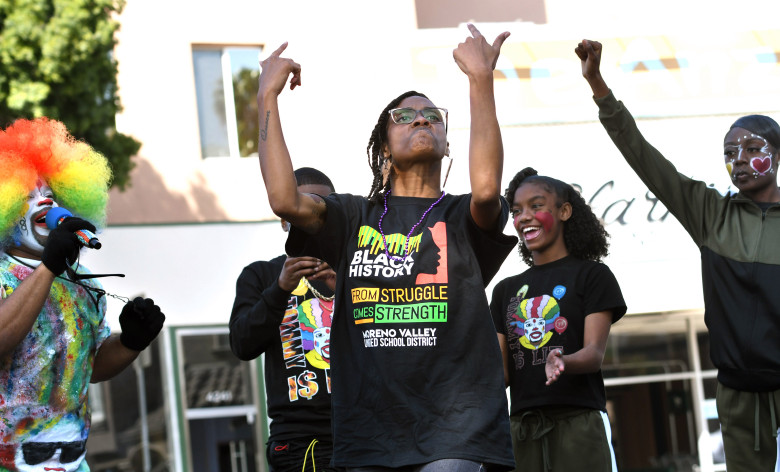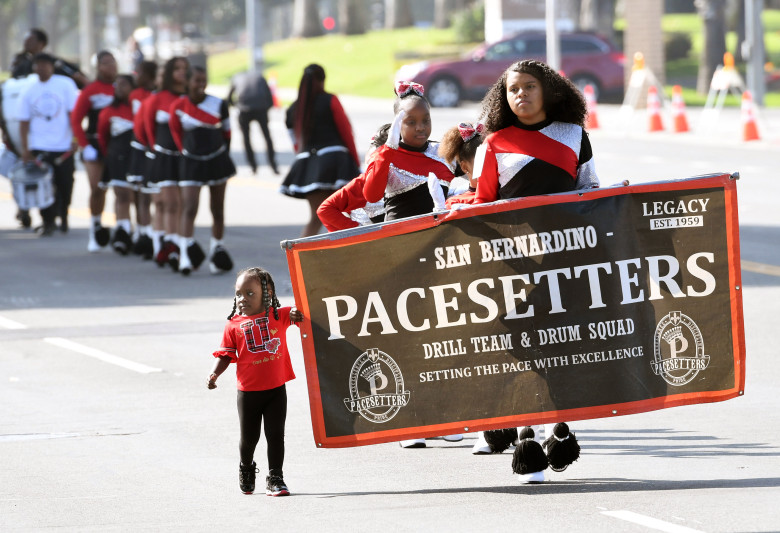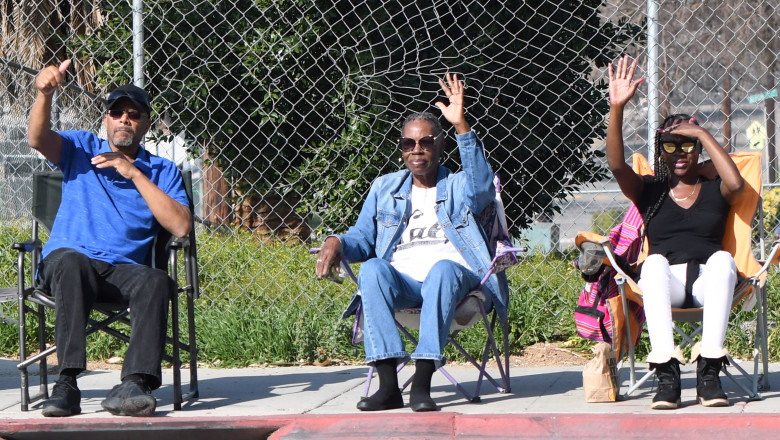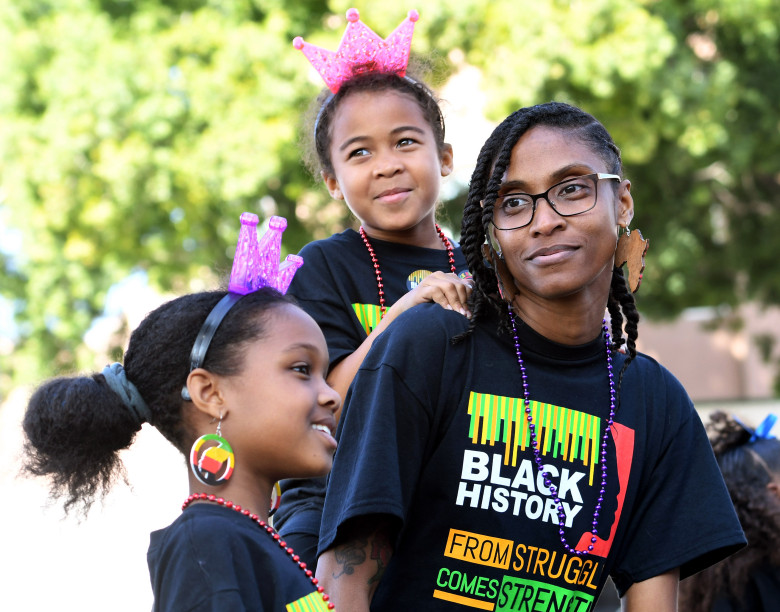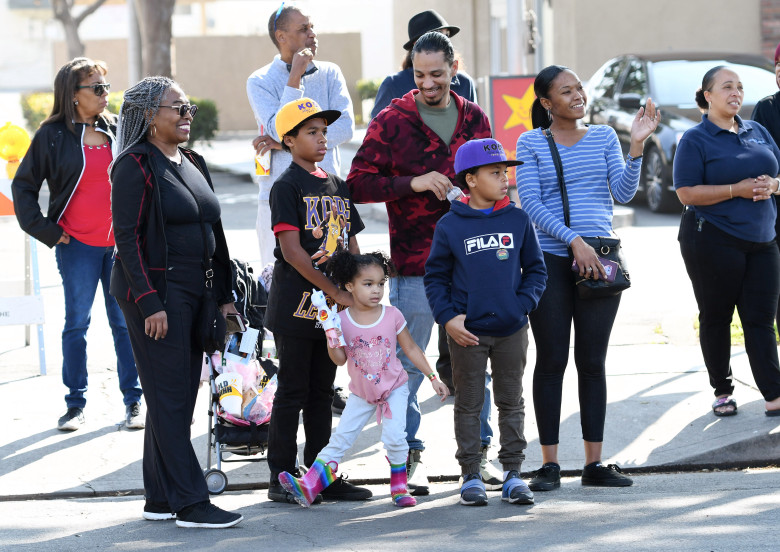By Khalil Abdullah
Everyone in the United States
plays a race or ethnic card some time, or at least everyone responding to the
census. Despite the scientific view that race is an artificial social
construct, unmoored from biological reality, is there a box that best describes
you?
Whether you plan to respond to
the census online, in writing, or by telephone, one question you’ll have to
answer will be how you self-identify.
What are the race and ethnic categories on the census
form?
Your racial choices are: (1) White; (2) Black or African American; (3) American Indian or Alaskan Native; (4) Asian – with numerous boxes as subsets; and (5) Some other race. The questionnaire also asks, separately, if the respondent is “of Hispanic, Latino or Spanish origin,” but instructs that, “for this census, Hispanic origins are not races.”
What if I’m not White or Black? I’m Egyptian and my neighbor is from Iran. What are our options and who determines the categories?
You and your neighbor fall into what is called the MENA classification: Middle Eastern and North African. There was a proposal to add MENA to the 2020 form, but the Office of Management and Budget, which makes the assigned identity group determinations about the census, decided to keep the same basic categories that were on the 2010 census form.
So, if I’m MENA, what box best describes me?
That’s a personal choice. Many MENA residents, and others, end up checking “Some other race,” the third-largest race category after White and Black or African American.
But I thought Hispanics and Latinos were now the second-largest racial group in the United States according to their population. So how do you get “Some other race” as the third-largest group?
As far as the census is concerned, Hispanics and Latinos are ethnic classifications not racial classifications. Some will check the “White” box and some will check the “Black” box or write in Afro Latino, for example, as an addition. Many will check the “Some other race” box. MENA respondents also frequently check the “Some other race” box as well. They don’t see themselves as Black or White, and in most cases, they are not of Hispanic or Latino origin.
Have census categories changed over time?
Yes. Mulatto, octoroon or quadroon once were options on the census form to describe African Americans of mixed heritage. One estimate calculates that 500,000 of these individuals checked the “White” box on the 1920 form. In later years, public demand and pressure resulted in the OMB removing “Negro” as an option for American-born residents of African descent. The term still appeared on the 2010 decennial census, but on the 2020 form the choices are “Black” or “African American.”
What if I was born here, but my parents are from Africa?
There is a lot of subjectivity involved in making these choices. For some, Black has come to mean anyone who is a descendant of the African diaspora, regardless of where they were born or live. One Somali man, a longtime resident and U.S. citizen, married an American woman who identified as Black. When asked how he describes his U.S.-born children, he said, “Well, now that I think about it, I guess they are African American.”
What if I am of mixed heritage? My parents are African American, but I know some of their ancestors were from Europe. They were Irish, for example, Dutch or German. Other ancestors, we think, were Native American.
The questionnaire is set up so that you can “Mark one or more boxes AND print origins.” We know America has had a complicated history (https://tinyurl.com/EMS-FAQ), as more people are discovering through genomic testing. One adult census respondent recalls discouraging his mother, who identifies as Black, from checking every major race category box on the form.
Why would it have mattered if she had? What difference does the box I check make or any information I may add?
For one, you have a better chance of “owning” who you are. Therefore, you are less likely to be misrepresented by a census employee who, without that information, would make a determination about your identity. So, in that sense, checking every box would be a more accurate contribution to understanding our country’s history. Individual census data is sealed for 72 years, but in the future your descendants or distant relatives will be able to look you up by name on the census form you respond to this year. In fact, the census is among the primary tools genealogists and researchers use to trace family histories. You might also reflect on that first constitutionally mandated census in 1790. To achieve a political compromise, those held in bondage were counted only as three-fifths of a person, and their names were not recorded on the census. Even as late as 1860, the last census before the Civil War, some owners reported the age and sex of their captives, but not their names.
But how does filling out the census or not filling out the census affect my immediate financial or economic condition?
For practical purposes, as a measure of population, census data is
used to determine how the federal and state governments allocate funds and
resources, in addition to determining the number of seats states get in the
U.S. House of Representatives. Data can be a double-edged sword. Some data are
critical to attempts to address structural disparities among America’s peoples,
but data also can be used as a guide to steer resources away from those deemed
political adversaries. How and why data are used is an important conversation,
but it’s a different conversation from whether it is in your interest to
respond to the census. However, unless you are clear about who you are by
identity, you may be grouped with a different race than your preference. That
was why the individual discouraged his mother from checking every box. He
wanted to make sure that if there were resources linked to her identity, those
resources would be allocated to and benefit the community with which she
primarily identified.
This article is a monthly column by Ethnic Media Services aimed to
educate about the need to respond to the 2020 U. S. Census.
 Westside Story Newspaper – Online The News of The Empire – Sharing the Quest for Excellence
Westside Story Newspaper – Online The News of The Empire – Sharing the Quest for Excellence










